Abstract
The virulence of Bacillus anthracis has been attributed to a tripartite toxin composed of three proteins designated protective antigen, lethal factor, and edema factor. The effects of the toxin components on phagocytosis and chemiluminescence of human polymorphonuclear neutrophils were studied in vitro. Initially, it was determined that the avirulent Sterne strain of B. anthracis (radiation killed) required opsonization with either serum complement or antibodies against the Sterne cell wall to be phagocytized. Phagocytosis of the opsonized Sterne cells was not affected by the individual anthrax toxin components. However, a combination of protective antigen and edema factor inhibited Sterne cell phagocytosis and blocked both particulate and phorbol myristate acetate-induced polymorphonuclear neutrophil chemiluminescence. These polymorphonuclear neutrophil effects were reversible upon removal of the toxin components. The protective antigen-edema factor combination also increased intracellular cyclic AMP levels. These studies suggest that two of the protein components of anthrax toxin, edema factor and protective antigen, increase host susceptibility to infection by suppressing polymorphonuclear neutrophil function and impairing host resistance.
Full text
PDF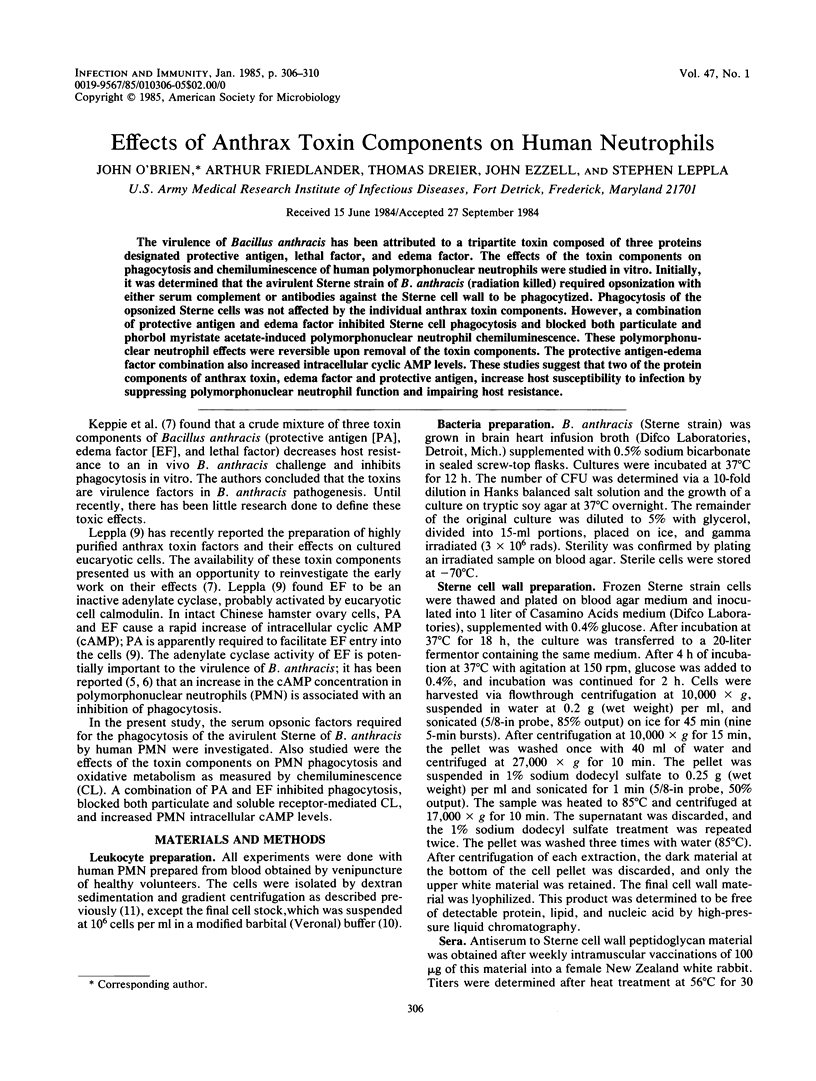
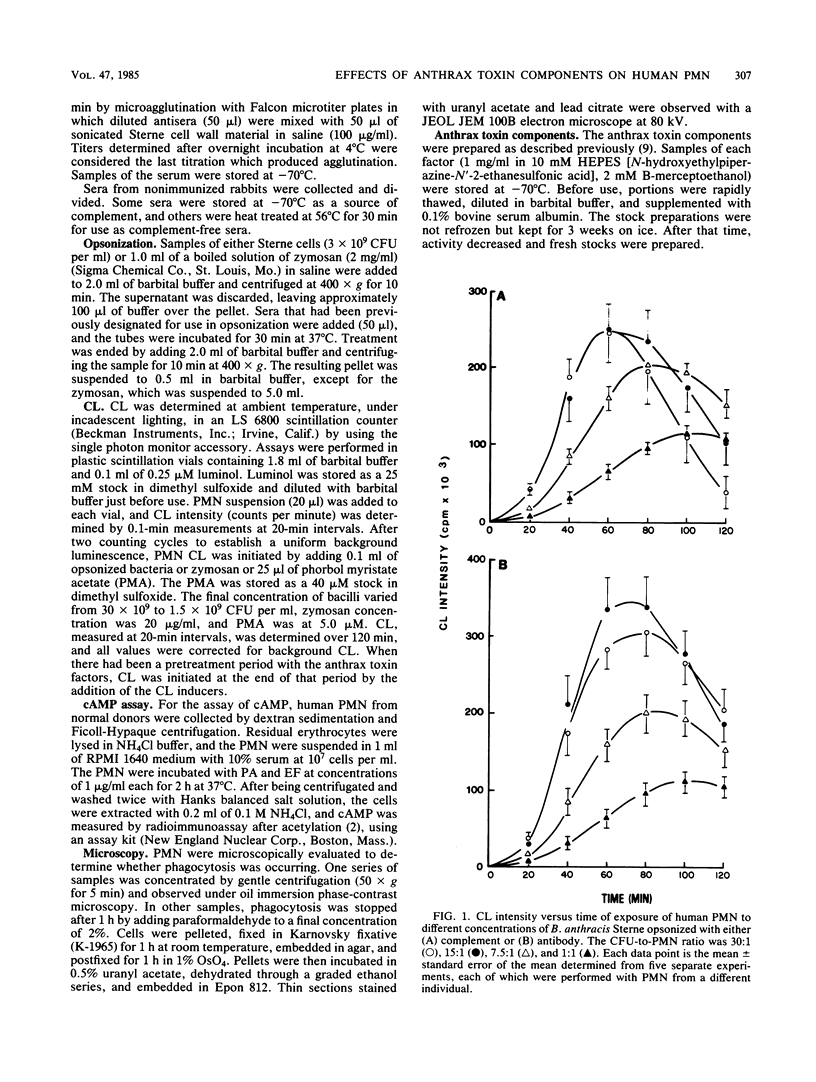
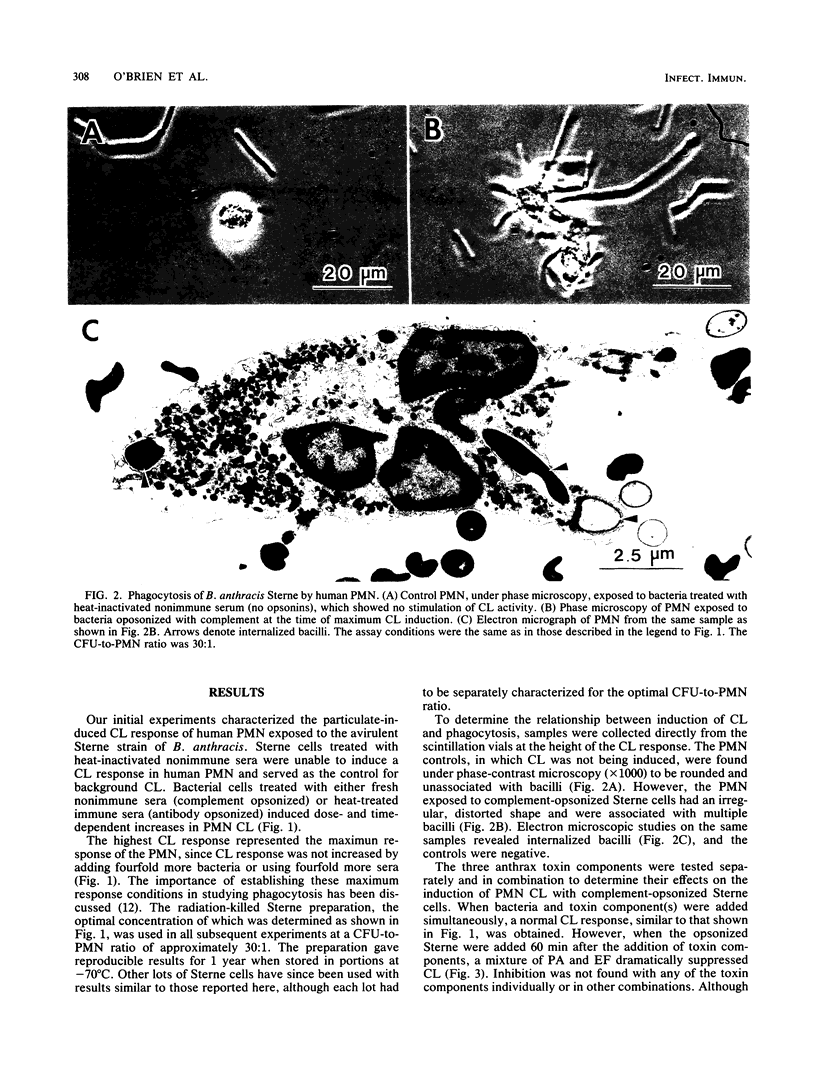
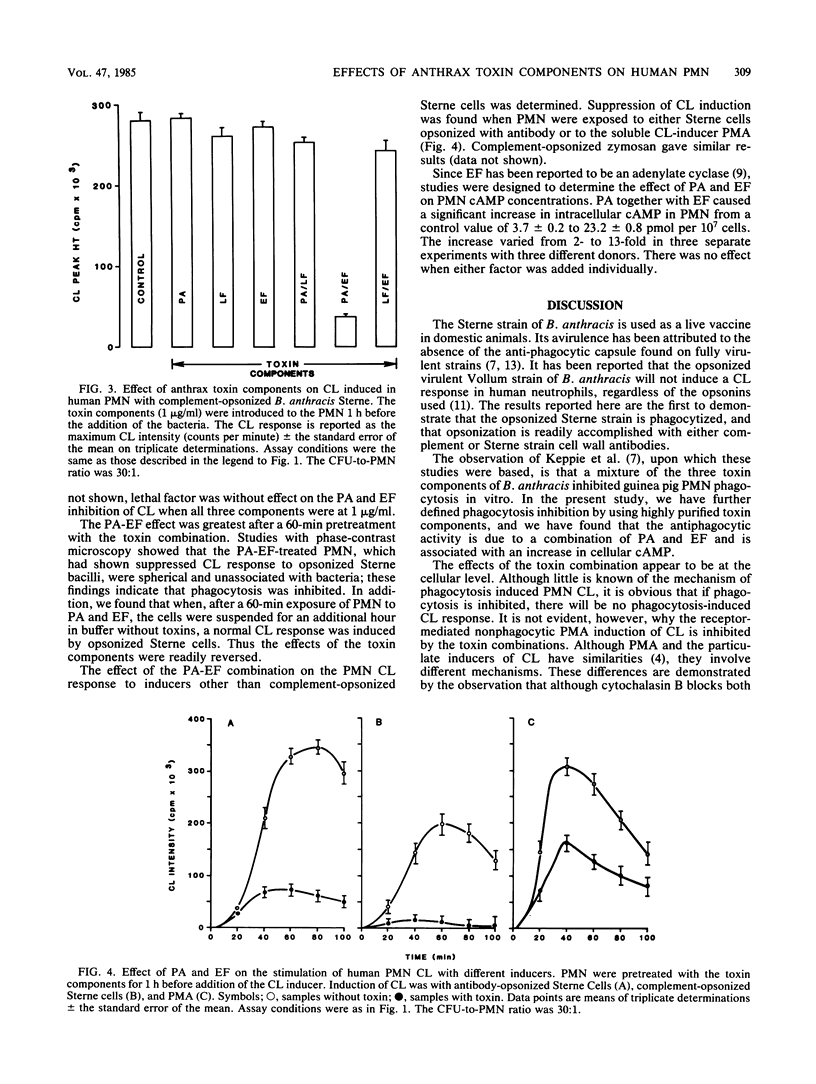
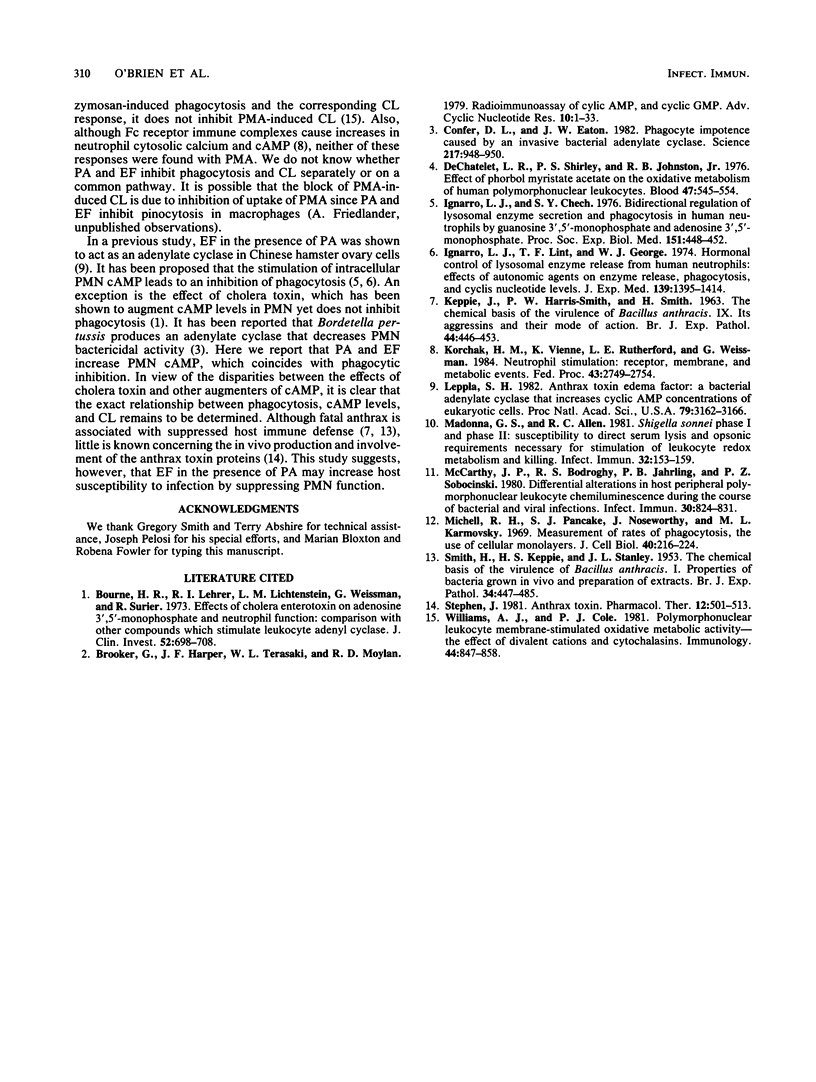
Images in this article
Selected References
These references are in PubMed. This may not be the complete list of references from this article.
- Bourne H. R., Lehrer R. I., Lichtenstein L. M., Weissmann G., Zurier R. Effects of cholera enterotoxin on adenosine 3',5'-monophosphate and neutrophil function. Comparison with other compounds which stimulate leukocyte adenyl cyclase. J Clin Invest. 1973 Mar;52(3):698–708. doi: 10.1172/JCI107231. [DOI] [PMC free article] [PubMed] [Google Scholar]
- Brooker G., Harper J. F., Terasaki W. L., Moylan R. D. Radioimmunoassay of cyclic AMP and cyclic GMP. Adv Cyclic Nucleotide Res. 1979;10:1–33. [PubMed] [Google Scholar]
- Confer D. L., Eaton J. W. Phagocyte impotence caused by an invasive bacterial adenylate cyclase. Science. 1982 Sep 3;217(4563):948–950. doi: 10.1126/science.6287574. [DOI] [PubMed] [Google Scholar]
- DeChatelet L. R., Shirley P. S., Johnston R. B., Jr Effect of phorbol myristate acetate on the oxidative metabolism of human polymorphonuclear leukocytes. Blood. 1976 Apr;47(4):545–554. [PubMed] [Google Scholar]
- Ignarro L. J., Cech S. Y. Bidirectional regulation of lysosomal enzyme secretion and phagocytosis in human neutrophils by guanosine 3',5'-monophosphate and adenosine 3',5'-monophosphate. Proc Soc Exp Biol Med. 1976 Mar;151(3):448–452. doi: 10.3181/00379727-151-39232. [DOI] [PubMed] [Google Scholar]
- Ignarro L. J., Lint T. F., George W. J. Hormonal control of lysosomal enzyme release from human neutrophils. Effects of autonomic agents on enzyme release, phagocytosis, and cylic nucleotide levels. J Exp Med. 1974 Jun 1;139(6):1395–1414. doi: 10.1084/jem.139.6.1395. [DOI] [PMC free article] [PubMed] [Google Scholar]
- KEPPIE J., HARRIS-SMITH P. W., SMITH H. THE CHEMICAL BASIS OF THE VIRULENCE OF BACILLUS ANTHRACIS. IX. ITS AGGRESSINS AND THEIR MODE OF ACTION. Br J Exp Pathol. 1963 Aug;44:446–453. [PMC free article] [PubMed] [Google Scholar]
- Korchak H. M., Vienne K., Rutherford L. E., Weissmann G. Neutrophil stimulation: receptor, membrane, and metabolic events. Fed Proc. 1984 Sep;43(12):2749–2754. [PubMed] [Google Scholar]
- Leppla S. H. Anthrax toxin edema factor: a bacterial adenylate cyclase that increases cyclic AMP concentrations of eukaryotic cells. Proc Natl Acad Sci U S A. 1982 May;79(10):3162–3166. doi: 10.1073/pnas.79.10.3162. [DOI] [PMC free article] [PubMed] [Google Scholar]
- Madonna G. S., Allen R. C. Shigella sonnei phase I and phase II: susceptibility to direct serum lysis and opsonic requirements necessary for stimulation of leukocyte redox metabolism and killing. Infect Immun. 1981 Apr;32(1):153–159. doi: 10.1128/iai.32.1.153-159.1981. [DOI] [PMC free article] [PubMed] [Google Scholar]
- McCarthy J. P., Bodroghy R. S., Jahrling P. B., Sobocinski P. Z. Differential alterations in host peripheral polymorphonuclear leukocyte chemiluminescence during the course of bacterial and viral infections. Infect Immun. 1980 Dec;30(3):824–831. doi: 10.1128/iai.30.3.824-831.1980. [DOI] [PMC free article] [PubMed] [Google Scholar]
- Michell R. H., Pancake S. J., Noseworthy J., Karnovsky M. L. Measurement of rates of phagocytosis: the use of cellular monolayers. J Cell Biol. 1969 Jan;40(1):216–224. doi: 10.1083/jcb.40.1.216. [DOI] [PMC free article] [PubMed] [Google Scholar]
- Stephen J. Anthrax toxin. Pharmacol Ther. 1981;12(3):501–513. doi: 10.1016/0163-7258(81)90095-4. [DOI] [PubMed] [Google Scholar]
- Williams A. J., Cole P. J. Polymorphonuclear leucocyte membrane-stimulated oxidative metabolic activity---the effect of divalent cations and cytochalasins. Immunology. 1981 Dec;44(4):847–858. [PMC free article] [PubMed] [Google Scholar]



